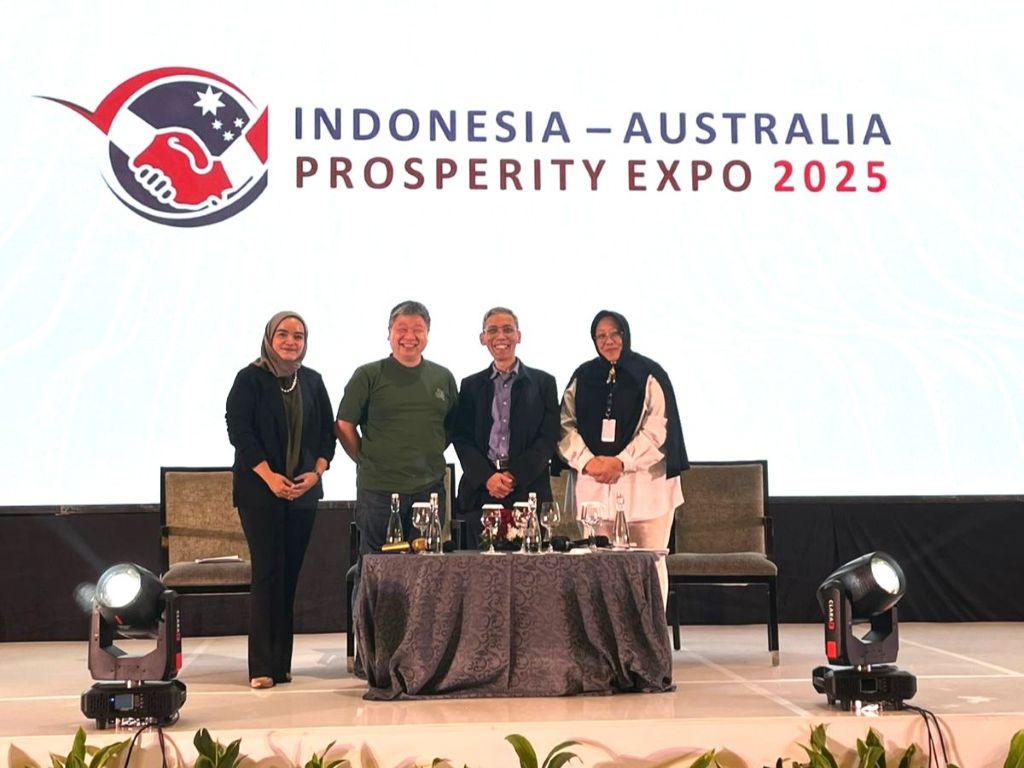Indonesia is advancing its economic transformation by focusing on innovation, digitalization, and value addition to become a sovereign, high-income nation.
The Indonesia-Australia Prosperity Expo (IAPEX) 2025, held in Jakarta, centered on "Unlocking Indonesia's Creative Services Export from Digital Talent to Skilled Workers," highlighting the country’s potential in creative and digital economy exports.
Pujo Setio, Deputy Secretary for Business and Digital Economy Coordination at Indonesia’s Coordinating Ministry for Economic Affairs, emphasized that the digital economy is a key driver of long-term growth.
He outlined seven vital sectors: manufacturing (downstream processing), services, tourism, construction and housing, semiconductors, digital economy, and green economy (energy transition).
“The digital economy forms the main foundation for Indonesia’s economic engine by optimizing domestic efficiency, expanding global networks, supporting equitable growth, and enhancing international competitiveness,” he said.
ASEAN Cooperation Accelerates Digital Economy Growth
Indonesia’s vision for 2045 includes active participation in the ASEAN Digital Economy Framework Agreement (DEFA).
This strategic pact accelerates ASEAN’s transformation into a leading digital economy.
DEFA serves as a comprehensive roadmap addressing the complexities and opportunities within the region’s digital landscape.
Current projections indicate that ASEAN’s digital economy will triple to reach USD 1 trillion by 2030, with DEFA expected to increase this to USD 2 trillion.
Such growth underscores the digital economy’s critical role in tackling global challenges.
Strengthening Bilateral Ties through IA-CEPA
The five-year implementation of the Indonesia-Australia Comprehensive Economic Partnership Agreement (IA-CEPA) has yielded significant economic benefits.
Bilateral trade between the two countries rose to AUD 35.4 billion in 2024.
IA-CEPA also supports enhancing product value, boosting exports to third-party markets, creating jobs, and driving shared economic growth.
Empowering SMEs Amidst Digitalization Wave
Indonesia’s Micro, Small, and Medium Enterprises (MSMEs) are poised to become pivotal growth engines thanks to digitalization.
Opportunities include expanded market access through e-commerce and social media, operational efficiencies via digital payments like QRIS, and government initiatives such as Go-Digital, digital literacy, and empowerment programs.
These efforts form the foundation for MSMEs to scale and enter global markets.
Building Digital Talent for the Future
Indonesia’s demographic dividend, its large productive-age population—offers a competitive advantage for digital transformation.
To harness this, comprehensive digital training for Millennials and Generation Z is vital.
Pujo Setio stressed the need for cross-sector collaboration and the development of the “3C” skills: creative, confident, and connected.
He called for enhanced Indonesia-Australia cooperation to boost digital talent, including initiatives like the Digitalent Scholarship.
PHOTO: KEMENKO PEREKONOMIAN
This article was created with AI assistance.
Read More






 Friday, 27-02-26
Friday, 27-02-26







